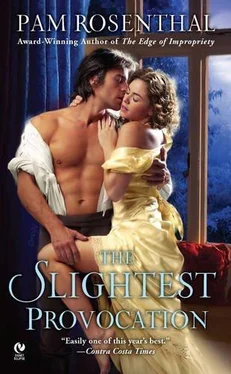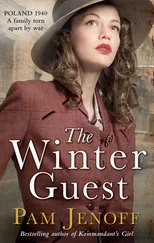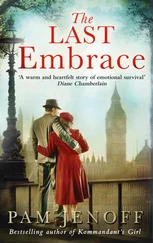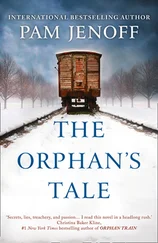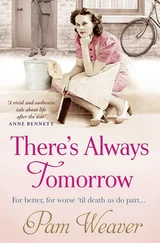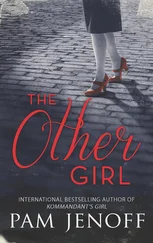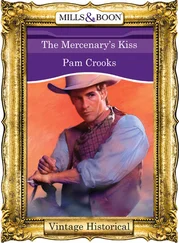They’d also been too young-or at least Kit and Richard had been-to grasp the absurdity of dueling over it. Too proud of what they’d called their honor, too stupidly enamored of their reputations; it still sickened her to know that one of them might have killed the other out on Hampstead Heath, while she sobbed and hiccupped, and Jessica patted and hugged her and gave her doses to make her sleep.
And when Kit did come home again-the only time she’d seen him until Calais-they’d been too furiously incoherent to do anything but hurl invectives and some rather good porcelain at each other. The Meissen clock had been reduced to shards, powder, and a few crazily spinning gearwheels beneath their feet, while their little dog yelped piteously from behind the fire screen.
Richard’s right hand still trembled from where Kit’s bullet had torn the nerves in his forearm. He was clumsy at attaching his papers together, and many of the pins had fallen onto the Turkey carpet.
“We all wronged one another,” she said now. “But you must cease hoping. Kit will gather evidence on me, prepare a case, sue Matthew for ‘alienating my affections,’ and then we’ll finally be free of each other. As though my affections were anyone’s to alienate but my own…”
Their laughter gave way to the rustle of the fire and the scratching of pen on paper, many sheets of it strewn about, some held together with pins that winked under the lamps. A few pages were splashed with tea, Richard having coughed and spluttered in dismay at Mary’s announcement that Kit wanted to work for the Home Office.
No matter, he’d told her-the pages were just early proofs. He’d been making his first corrections for the next issue of Everyman’s Review while Mary replied to the letters she’d found waiting for her at his house in Lincoln’s Inn Fields.
She hadn’t provided a great deal of detail about Calais. But Richard wouldn’t have needed much, knowing Kit as he did, and continuing to love him-though a gentleman might not have expressed it that way.
Bless him for remaining such a good friend to her. And bless his wife, Anna, for having become her friend as well.
The three of them had enjoyed a gay supper upon her arrival last night. Finishing off several bottles of good claret, they’d laughed, gossiped, and interrupted one another for hours, speaking of art and history, Mary’s travels and the affairs of the nation. A satisfying, wide-ranging conversation, and yet constructed with some art to exclude any reminder of long-ago events at Curzon Street.
Astonishing how meticulous we can be, Mary reflected, who profess our shared contempt for petty social convention. But Anna was the true artist among them.
The offhand announcement, over this morning’s muffins and marmalade, of a shopping expedition in Bond Street, and would Mary care to accompany her?
The bright nod in Mary’s direction, coffee cup clinking against gold-rimmed saucer for emphasis.
The significant pause: chin raised, cornflower-blue eyes so coolly communicative of their owner’s wishes that Mary had no choice but to plead exhaustion and the necessity of catching up on her correspondence.
“Yes, of course. How foolish of me. Well, I’ll leave you to Richard. You two can shut yourselves up in his dreary study with your papers and some strong tea. Just finish it up quickly, will you, so we all can go for a drive later.”
Brava, Anna. And bravo to Richard for finding himself such a perfect mate.
“Please do come in,” he called now, in response to Anna’s rap on the door, precisely two hours after he and Mary had closeted themselves in his study.
Mama and Papa had sometimes arranged their affairs in this manner (“I shall disturb you and your guest in an hour, Joshua.” “An hour and a half would be better, my dear.”). Watching a smiling Anna make her way to the table and begin repinning the papers, Mary allowed herself an instant’s pure envy.
But only one, she reminded herself. You’re entitled to only one such moment for every visit with these good friends, so snugly and smugly sure of each other, their beliefs, and their roles in the universe’s scheme for humanity’s betterment. Anna doubtless spent part of every day in this “dreary study,” helping Richard keep his work in order so he could produce the twice-monthly newspaper he was so proud of.
But Mary’s spite had already given way to bemused affection for a good friend’s more than good opinion of himself.
Richard’s political convictions had outlasted his infatuation. By now he was a familiar presence in drawing rooms where the furniture was worn but the ideas glittered like fresh-minted coins. He’d first encountered Matthew Bakewell at one of these venues last year, and presented him to Mary soon after.
And when he’d come into his fortune, he’d simply poured it into the Review, publishing the opinions of everyone he admired, treating his moral and artistic heroes to good food and excellent drink, and occasionally providing more substantial help as well. Even Mary had once contributed an essay, a rather dry thing on the Corn Laws under the name of Edward Elyot (she’d only shrugged this morning when Richard had wondered if Mr. Elyot might like to try something else).
His life with Anna was amiable and exceedingly comfortable, his kitchen and wine cellar superb. His opinions were bracingly radical, but (Mary had to allow) in certain particulars comfortably static as well. Although Kit had professed to have no political sense whatsoever, he’d been most prescient when he’d told her years ago that historical events wouldn’t ever cause Richard to alter his hero worship of Bonaparte, the Scourge of Tyrants.
(And yes, she thought now, some of the rulers Napoleon had deposed were tyrants. And no, some of them were not. It would be a neater world if one could have it all one way or the other. But then, it would be a neater world if she weren’t plagued with all these thoughts and memories.)
“Would anyone care for some luncheon?”
She blinked; Anna had opened the drapes to let in some midday sunshine.
“Yes, thanks,” she heard herself saying. “I’m quite ravenous. And then what about that ride in the park you promised us?”

Park Lane stretched away to the right of the Morrices’ barouche; Hyde Park lay in front of them. Mary kept her eyes straight ahead until their carriage entered the park.
No, she told Anna and Richard, she wouldn’t be able to stay an extra day. “Thanks so much for inviting me, you darlings, but Jessica needs me; I shall have to depart quite early tomorrow.”
Not that her sister wasn’t an excellent manager. “There was the period when her steward took advantage of her grief to rob her, but she’s got a good new man helping her now. Still, she needs companionship-of someone more her age than her daughter. Julia’s been there, and now it’s my turn to help her prepare for the Midsummer’s Eve party. There wasn’t one last year, of course, while she was mourning for Arthur, and also because things were so bad in the neighborhood. At least things are a little better now; nobody’s breaking any more knitting frames.”
Richard cleared his throat. “Very little machine breaking these days. The actions of the last few years were actually quite successful; the men got better wages out of it. Good that they were so scrupulous about only disabling the frames that belonged to cheating owners- and that produced inferior stockings. Luddite machine breakers weren’t stupid; they weren’t out to destroy their own livelihoods.”
He paused. “Though of late the recession in the textile industry has caused new hardships. Together with the bad harvest and worse weather.”
Читать дальше
